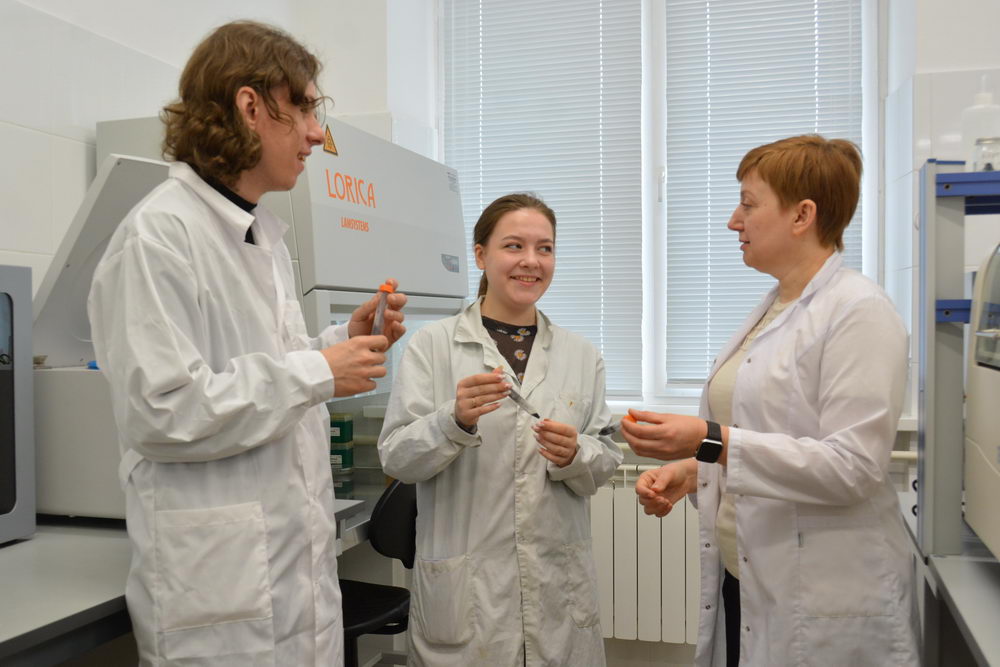- 27.03.2025
Something about bioinformatics and nanotechnologies
Tatyana Petrovna Dyachkova, a leading scientist in this field, told about the prospects of carbon nanomaterials to students of the Natural Science Institute of Tula State University at a meeting on March 27th.
Tatyana Petrovna Dyachkova is a professor of the Department of Chemistry and Chemical Technologies at Tambov State Technical University. Her research interests include the functionalisation and modification of carbon nanostructures, polyfunctional nanocomposites, and electrode materials based on conducting polymers.
In 2020, she became the youngest Doctor of Chemical Sciences who received the title of professor in her university. At TSTU, T.P. Dyachkova heads the centre for collective use of scientific equipment in the field of “Production and application of polyfunctional nanomaterials”.
- TulSU and TSTU have been closely cooperating since 2021 in the field of nanobiotechnologies for the development of bioelectrocatalytic systems, - said Olga Nikolayevna Ponamoryova, Head of the Department of Biotechnology at TulSU. - The laboratory of ecological and medical biotechnology of our university has a team of young scientists capable of developing scientific direction in the field of nanotechnology and bionanotechnology. The results of joint research have been published in scientific articles.
Now the team of the two universities is fulfilling the grant of the Russian Science Foundation “Copper-containing oxidases of bacteria and archaea: prospects of application in biocatalysis and bionanotechnology” in three areas: bioinformatics and molecular biology, materials science and nanotechnologies, biocatalysis and bioelectrocatalysis.
At the meeting with students, Professor Dyachkova spoke about this work and the role of young researchers in it. She noted that today even junior students can engage in fundamental and applied science, gradually building their potential, acquiring knowledge and experience.
Researchers are searching for carbon nanomaterials for the development of biosensors. This project will not only contribute to fundamental chemistry and biotechnology, but will also have a practical effect.
It is expected to create biosensor models for the determination of specific phenols and bilirubin for clinical applications. The results will determine the prospects for test strips in the disposable version of the assay.
Bilirubin is the most important indicator of blood biochemical analysis. It shows the state of metabolic processes and possible diseases of some organs.
Dmitriy Litvinov
Photo by Mikhail Gindin








